An unexpected hospitalization of an aging loved one can quickly become an overwhelming experience for you and your family. You can take comfort in knowing that your loved one will receive the proper treatment and care they need in the hospital, but what happens after they leave? For many seniors, additional treatment and care are still needed to guarantee a thorough recovery. At Dignity, there’s where we come in; our home health team offers in-home after-hospital care to ensure your loved one continues healing at home. In this article, we’ll discuss what you need to know about this service and how it can help your loved one.
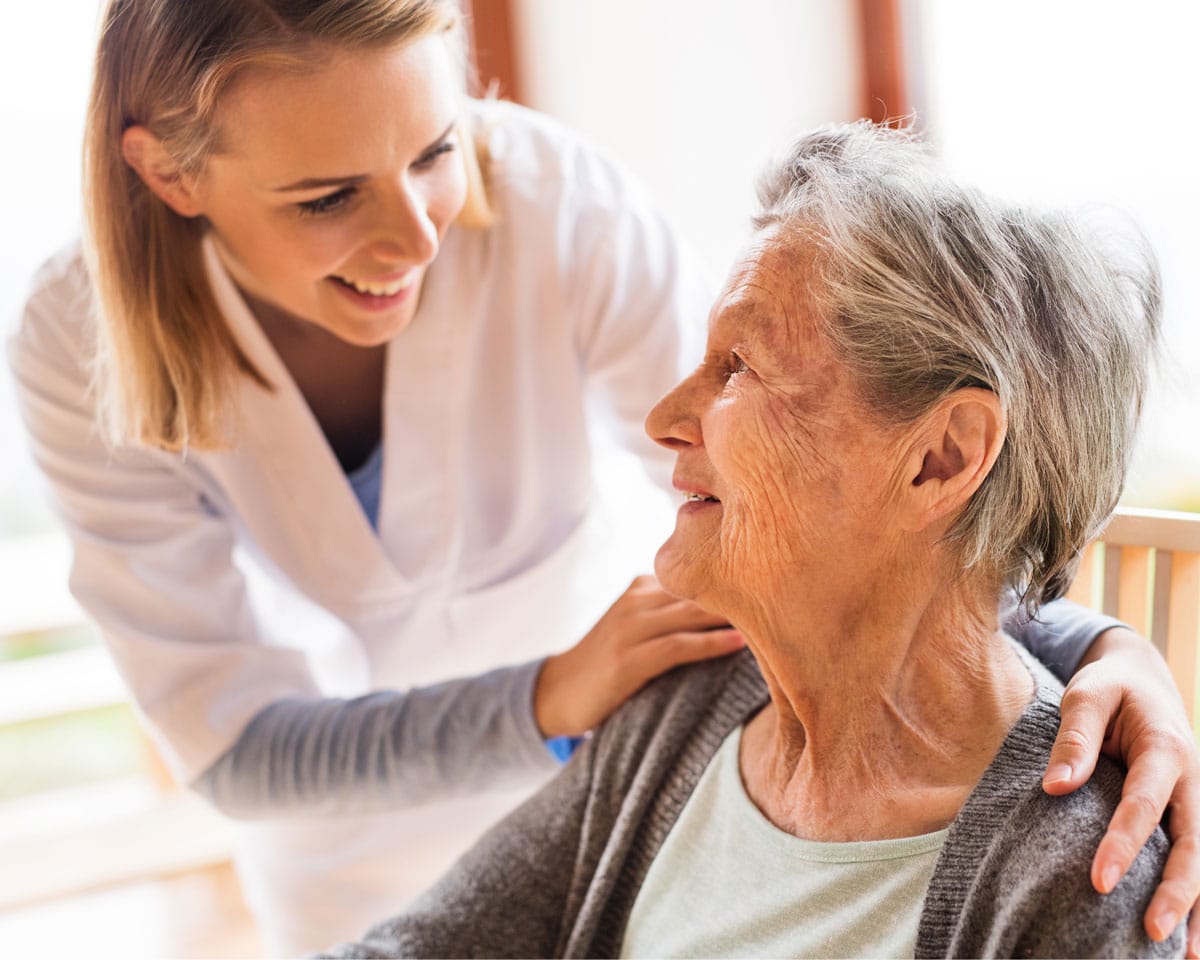
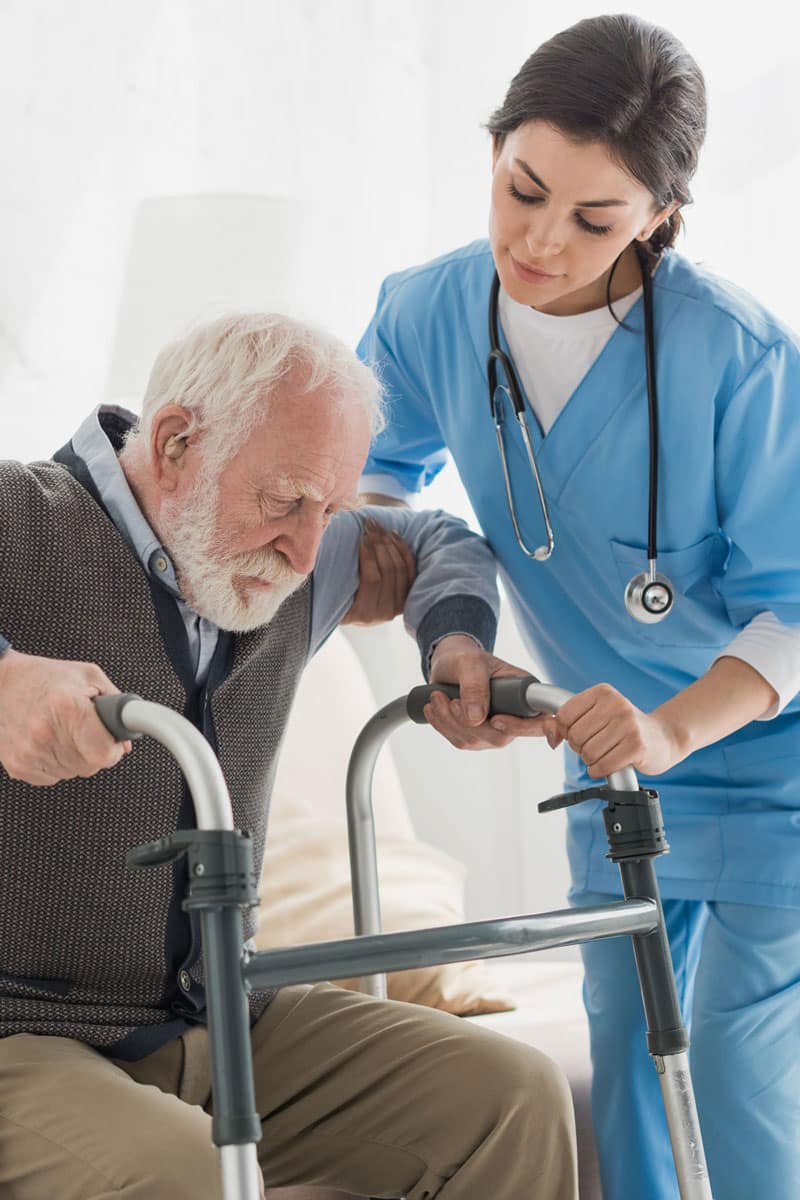
Hospital Aftercare: Helping Your Loved One to Regain Independence
Did you know that in the United States in 2018, a total of 3.8 hospital readmissions occurred within 30 days of the patient leaving the hospital? Of those 3.8 million readmitted people, those in the Medicare age group accounted for over 60% of the readmissions. Programs that offer rehab for the elderly after a hospital stay are critical to helping your loved one avoid readmission and eventually become more independent again. Elderly loved ones who receive in-home post-hospital care also benefit from improved physical recovery and greater emotional well-being.
This recovery period after leaving the hospital can be a challenging time for your loved one and your family. This is because the recovery process continues after the hospital stay ends, and your loved one will need attentive, skilled care. To ensure a complete recovery, your loved one will require direction and supervision from doctors and nurses.
Options for Care After Leaving the Hospital
Upon being discharged from the hospital, patients should not be home alone. Depending on the circumstances surrounding your loved one’s condition, there are a few options that give them access to the best care possible. Your loved one’s healthcare provider will recommend the appropriate treatment going forward.

Skilled Nursing Facilities
Skilled nursing facilities offer short-term, 24/7 rehab for the elderly who require professional medical care after their hospital stay. These types of facilities offer medication management, meal assistance, and medical assistance services. They provide direct access to specialists and providers such as occupational and speech therapists. Throughout the course of the treatment at the skilled nursing facility, the medical team will ensure that your loved one is capable of taking care of themselves before being discharged.
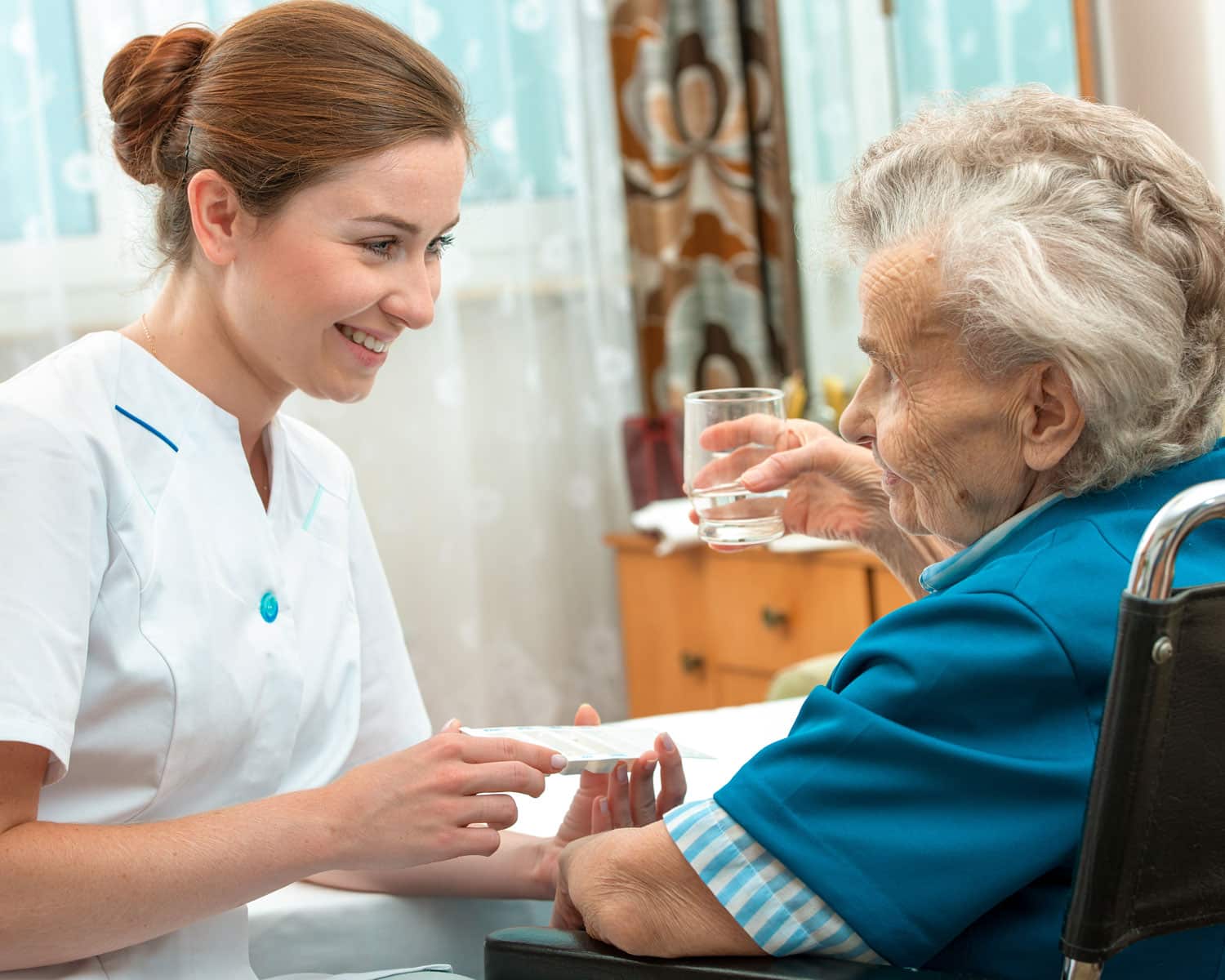
Assisted Living Facilities
Assisted living facilities provide rehab after a hospital stay for those who need fewer services than those provided at a skilled nursing facility. Residents in these facilities receive assistance with ADLs (activities of daily living) such as medication management, dressing, bathing, grooming, and toileting assistance. At the facilities, the staff is available around the clock for service when the residents need help. Each resident is encouraged to stay as independent as possible throughout their recovery.

In-Home Care
In many cases, patients can qualify for in-home care to help them recover and regain their independence at home. Many patients who qualify for at-home recovery are mobile enough to meet their basic needs. However, they still require assistance to recuperate completely. Providing care at home eases a loved one’s transition after being discharged from the hospital and helps them feel more comfortable. Care services are determined by a physician based on meeting the needs of each individual.
Hospital After-Care Services We Offer
When your loved one is discharged from the hospital, you want to ensure they’re in good hands. At Dignity, we are committed to providing skilled nursing care in the home — or wherever your loved one calls home. We offer various services to meet the needs of those who require help after coming home from the hospital. While we can provide all of these types of assistance to our patients, the care plan for your loved one may only include some of these services.

Physical Therapy
Physical therapists help our patients ease pain and allow them to move, function, and live better. This therapy prescribes specific movements to restore function to injured or weakened parts of the body. Physical therapy after a long hospital stay or surgery is often essential for seniors. Our skilled physical therapy providers visit the home to assist the patient with their exercises while they enjoy the comfort of being in familiar surroundings.

Occupational Therapy
Those recovering from surgery often struggle to complete daily tasks and can significantly benefit from occupational therapy at home. Occupational therapists assist patients in performing activities of daily living, such as dressing, eating, bathing, and more. While working with patients in their homes, they teach them rehabilitation and exercise techniques to make routine tasks easier.

Speech Therapy
Speech therapy aims to assist and treat communication problems and speech disorders. Those recovering at home from a stroke or other neurological issue may have issues talking or communicating, difficulty swallowing, or could experience disorientation. Speech therapy focuses on improving communication and cognitive function while teaching the patient safe swallowing practices, if necessary.
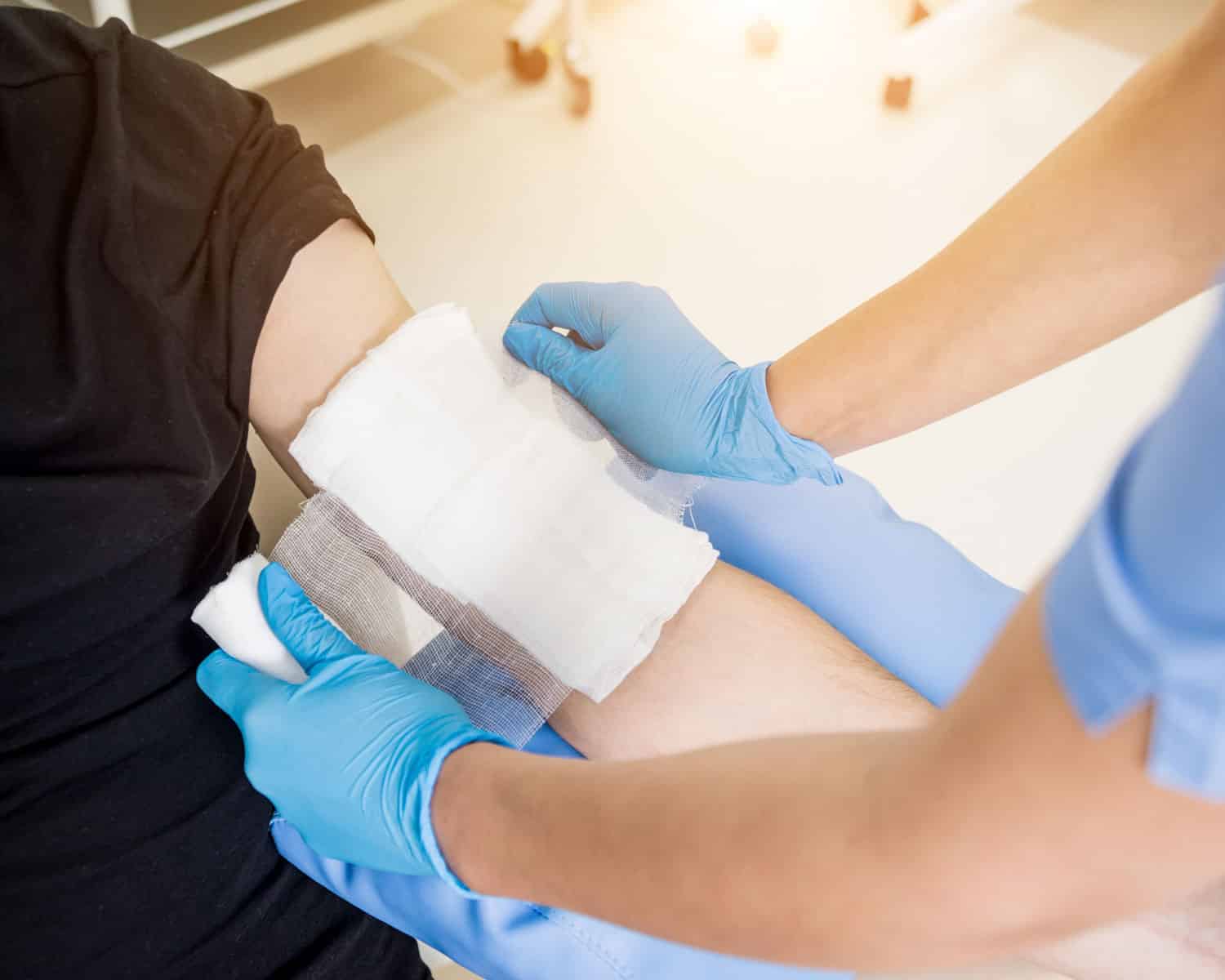
Certified Wound Care
We provide specialized wound assistance to ensure your loved one is on the pathway to healing. Under the direction of the patient’s physician, our trained team will provide specialized assistance to treat the wound or surgical site in addition to treating the cause of the injury. Throughout this process, we remain committed to providing healing and comfort for the patient.
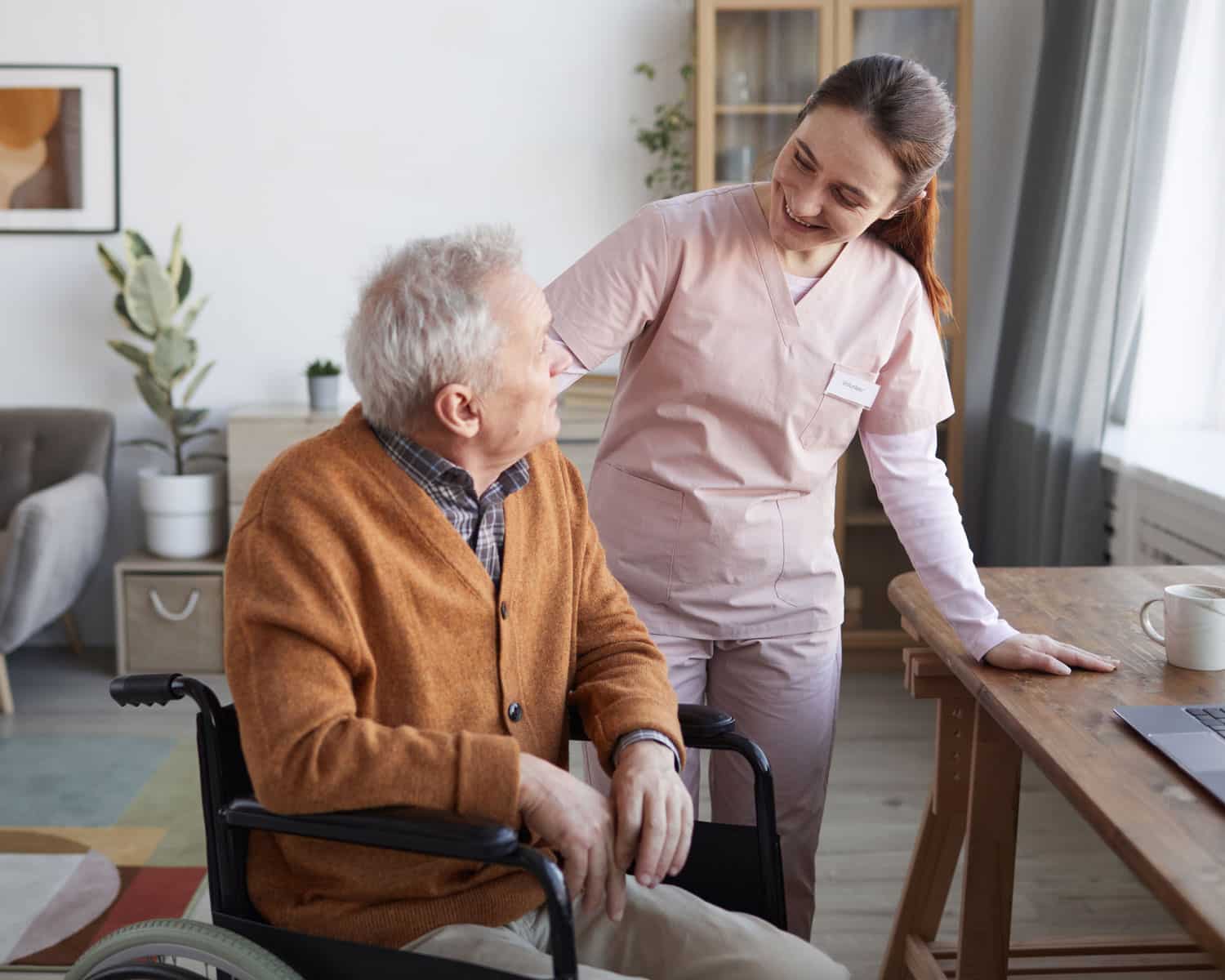
Assisted Daily Living Skills (ADLS)
These are fundamental self-care tasks that help a loved one to maintain independent living. These activities include personal hygiene, dressing, eating, maintaining continence, and mobility. Many who have been released from the hospital often need a little assistance with these skills. Most patients eventually regain their ability to complete their assisted daily living skills by themselves.

How to Determine if After-Hospital Care is Right for Your Loved One
While your loved one’s physician will ultimately decide what type of care they should receive after the hospital, it’s good to stay informed of the possibilities upon release, so you know what to expect. If your loved one is undergoing elective treatment, this will allow you time to know what to expect and create a plan. So, how do you know if post-hospital in-home rehab would be an option for your loved one?
Generally speaking, patients who don’t require around-the-clock care but require wound care or therapy and ADLS assistance are good candidates for in-home service. Additional support from caregivers can also make in-home rehab easier to manage. Before being discharged from the hospital, the physician may make an occupational therapy appointment to determine how much aid they will need at home.
Paying for After-Hospital Care for the Elderly
One of the most common questions families ask is, “Does Medicare cover the cost of hospital aftercare?” First, you’ll need to determine if the care your loved one needs is medical or non-medical. This determination will be offered by the physician who is tending to your loved one. Medicare provides some coverage for medical home care after the hospital, such as those offered by physical therapists, visiting nurses, occupational therapists, and speech therapists. Medicare also covers some services that are provided in conjunction with home healthcare. It’s always best to contact the provider of the after-hospital care to determine what will be covered by Medicare and what costs you might expect.

